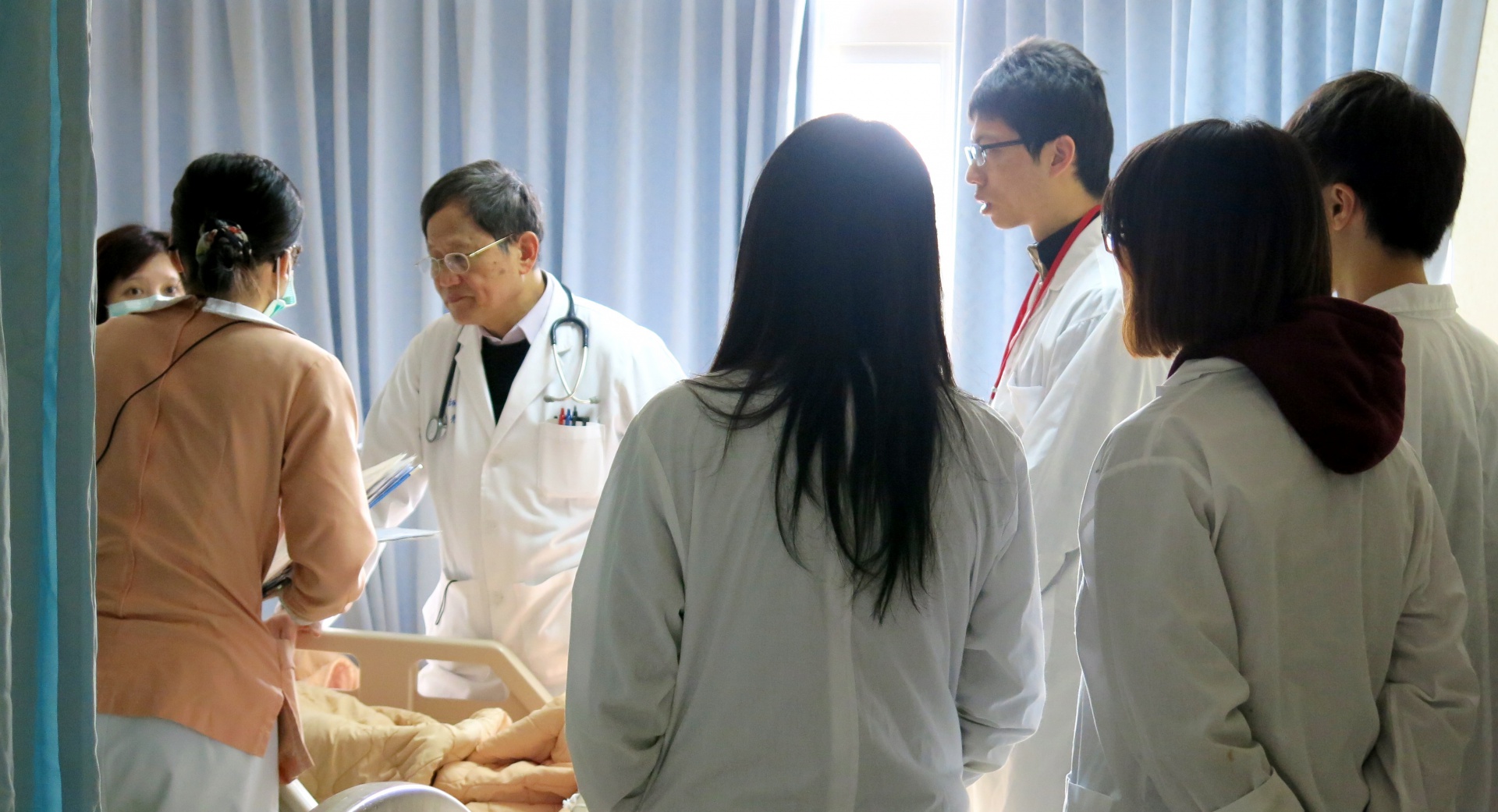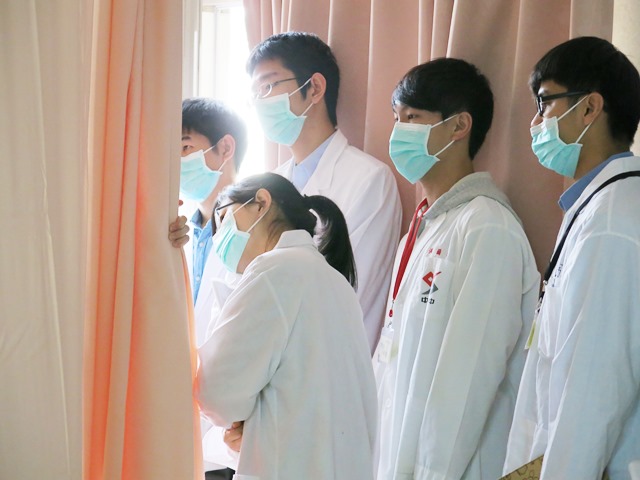
A “shadow doctor” is someone who follows a physician in an effort to gain first-hand knowledge. Normally shadowing a physician provides medical students with unique insights of the physician’s daily hospital practices, but not so with this group of medical students at Mackay Hospital. These medical students shadow doctors in order to learn specifically what a hospice is by observing with their eyes and experiencing with their hearts the interactions between patients and doctors.
Subsidized by the Ministry of Science and Technology, the Hospice Foundation of Taiwan has launched a series of Shadow Doctor Camps to offer opportunities to pre-med and non-medical students who are interested in hospice care. This is a great opportunity to experience and learn from the actual setting of a hospice ward.
With the encouragement of school teachers, many freshman and sophomore pre-med students from Yang Ming Medical University, Mackay Medical College, and China Medical University have registered in the Shadow Doctor Camp at the Mackay Hospice and Palliative Care Center in Danshui. Led by the medical school students’ participation, the Shadow Doctor Camp consists of 20 participants each session and has now completed six sessions.
Why encourage students to participate? Professor/ Dr. Enoch Lai from Mackay Medical College points it out from his past twenty years of experience in teaching: besides passing on medical knowledge and skills, the Shadow Doctor Camps instill empathy. With this basic mindset, pre-med students will be able to make the most suitable decisions based on the patients’ interests. This is also why Professor Lai insists on the participation of the pre-med students.
The former superintendent of Mackay Hospital Dr. Yang once advocated for all medical supervisors to participate in a “One Day in Hospice” program to experience what it was like for hospice patients. He insisted for all participants to have at least one tube inserted into their bodies, either a nasogastric tube or a bladder catheter. Unfortunately, Dr. Yang was diagnosed with lymphoma due to a salivary gland discomfort, and this experiment was never implemented.
Nevertheless, Professor Lai emphasizes that the Shadow Doctor Camp shares the same spirit with Dr. Yang’s “One Day in Hospice”. The ultimate purpose is to have the participants feel for the “bitterness” and suffering of patients and their families. One of the courses is “Be Friends with Patients”, in which participants will be divided into small groups to create their own versions of doctor-patient conversations. Through these conversations, participants will act as helper, aided person and observer, and learn how to better communicate with patients without hurting their pride and feelings and without making them feel ashamed—this is an important concept needed even before participants set foot in the hospice wards and have actual interactions with patients.
During these five days of camp, these participants follow the attending physicians and closely observe how physicians communicate and work with patients. At the same time, participants have opportunities to observe the nurses, social workers and other palliative care team members. Since this camp is not considered formal education, patients are informed in advance to ensure their personal privacy is protected and conform to ethical procedures.
As our utmost goal, we strive for the patients’ comfort in the hospice ward. Be it physically or psychologically, the shadow doctors are also introduced to all sorts of complementary therapies used, like music therapy, aromatherapy and art therapy. With these therapeutic techniques, patients feel relaxed and relieved in body and soul.
Though the camps are relatively short, they help in spreading the seeds of hospice care and deepening its roots. In the closing ceremony of the 11th Asia Pacific Hospice Conference held in Taiwan, Professor Lai mentioned the task at hand is now the care provided for terminally ill patients. He expects these shadow doctors to have this treasured experience and never forget why they choose to be a doctor in the first place. After all, being a doctor should be less about curing diseases and more about caring for patients as persons.

